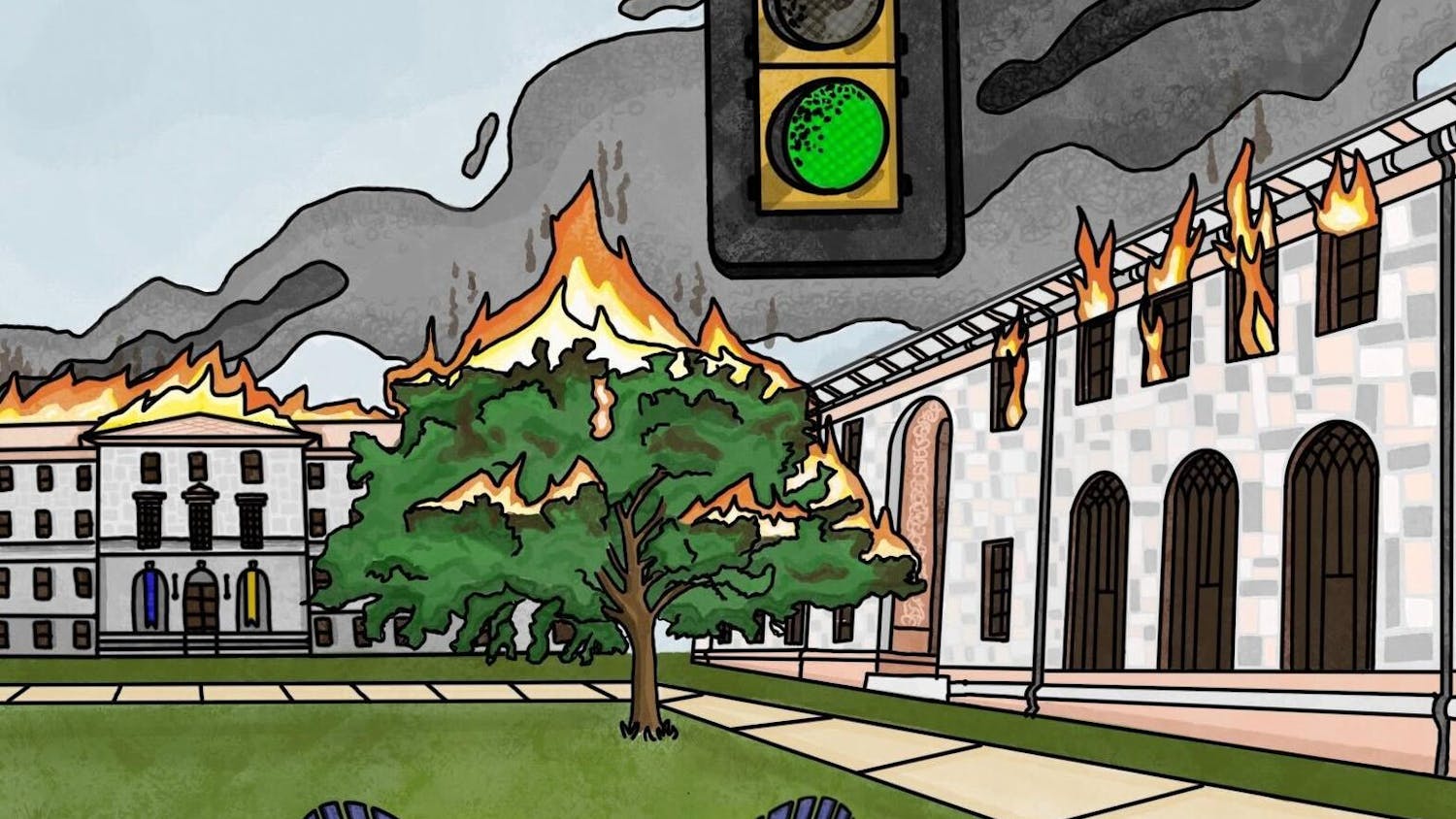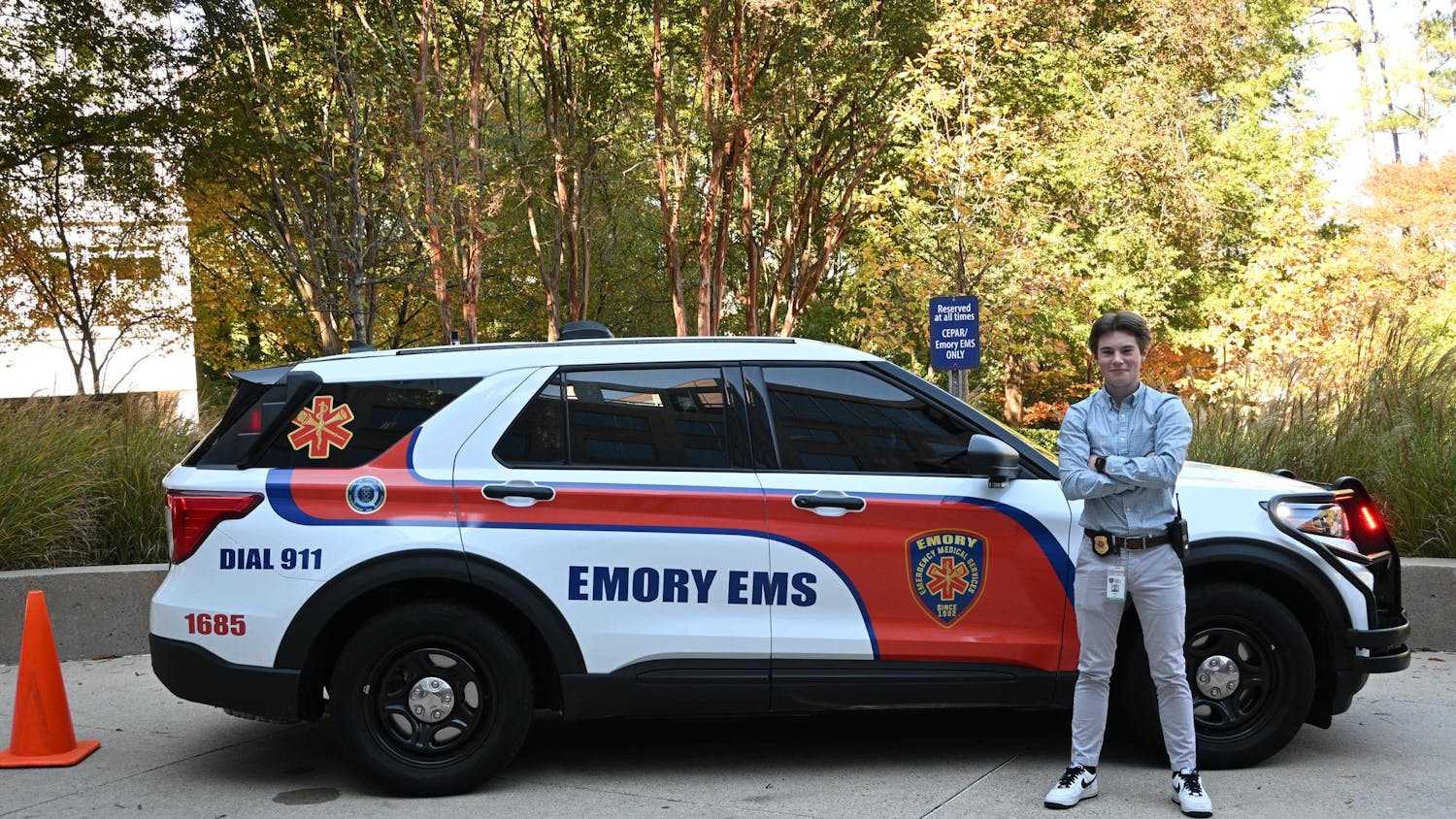This piece was written by the Executive Board of Emory J Street U on behalf of the organization as a whole and speaks for the organization as a whole. Writers included Zoe Robbin, Jon Rosen, Josh Niemtzow and Leah Michalove.
We, the leaders of Emory J Street U, are reaching out to the campus community after a series of troubling events regarding our application to be chartered by College Council. After months of silence, we were told recently that our original acceptance as a student organization was no longer valid and that our charter had been revoked. We write this piece to tell our story and to advocate for change in a system that continues to be unfairly and unnecessarily difficult, inconsistent and contradictory in its decision making.
In August 2015, we gathered around a table in Eagle’s Landing to form officially the Emory chapter of J Street U, a progressive organization that advocates for a two-state solution in Israel-Palestine. Our chartering hearing went smoothly, but College Council had an additional request: 10 student signatures on paper with ID numbers. We happily complied, sending in the final piece of paperwork with the signatures of students interested in and supportive of Emory J Street U’s formation. We were granted a “Self-Generated (Non-Recommended for Funding)” charter on Nov. 16, 2015. Despite our official charter, Emory J Street U could not access OrgSync, so we emailed College Council and waited. And emailed again. And waited. And finally, we texted.
On Jan. 26, 2016, two months after we were chartered, the College Council vice president of administration texted back to inform us that Emory J Street U was under investigation for falsifying our signature list. No word of this allegation had reached us in the previous months and no official email laying out these charges was ever sent to our organization. In fact, the only email we ever received regarding this matter was from the president of College Council on Jan. 31 notifying us of our de-chartering.
Upon hearing these allegations, the J Street U board began contacting the members on our signatures list in an earnest effort to ensure that no mistakes had been made on our end. And despite the “due diligence” referenced in the College Council president’s de-chartering email, nine out of the 10 signatories told us that they had not been contacted by College Council and were extremely shocked and displeased when we told them the news of our de-chartering.
We appealed College Council’s decision to the Student Government Association (SGA) and were granted an appeals meeting. Essentially, this was supposed to be a space where our executive board and a College Council representative would argue our cases to the SGA jury. We discovered that College Council’s case rested on their allegation that we had “solicited signatures from non-members.” We had no way to meet any definition of membership because, as the College Council representative later told us, no such definition exists. For unchartered organizations, there is an inherent ambiguity in what constitutes a member; we can’t have meetings, events or even reserve spaces, so student involvement is by definition informal and non-binding. Yet instead of acknowledging the implausible and confusing standard of membership they had set, College Council leadership accused us of fraud and denied our chartering application. When asked to provide the text and details of the specific procedures we had violated, the College Council representative shrugged and mumbled that the website was “under construction.”
Rather than justifying that decision with an official rule, the College Council representative explained that concerns with our membership list arose from a conviction that certain individual signatories would never support the politics of J Street U. In fact, he disclosed that the investigation began when a member of College Council expressed disbelief that an acquaintance of theirs would support J Street U. Though SGA insisted they made an effort to depoliticize our case, which we appreciate, the inquiry’s basis in political assumptions about both our organization and our signatories must be taken seriously.
We left SGA’s committee to its deliberations after our hearing, as we were asked. Yet, for a reason unbeknownst to us, the College Council representative who had made the arguments against us was allowed to remain inside the room during the vote, harming its integrity.
Despite evidence of our concerted effort to rectify the issue and of a substantial pro-peace constituency on campus, SGA upheld College Council’s decision. We are deeply disappointed with College Council and SGA’s ruling, but we are even more disappointed with the opacity, inconsistency and lack of professionalism of this multi-month process.
The obstacles faced by Emory J Street U are neither unique nor freak-accidents in bureaucratic oversight; rather, they are emblematic of deeper systemic challenges. When it comes to chartering, finances, rule infractions, fundraising and fund distribution, our governing body is consistently ineffectual and unequivocally nontransparent. The laws that dictate these protocols are constantly revised but rarely consolidated, each set of instructions giving different directions and different timelines. Lost in contradicting emails and causal text messages, J Street U’s leaders mistook a list of interested students for a membership list. In response, College Council called us “deceitful” and denied our chartering application with the promise of an opportunity to begin the whole process again next year. The system is not glitchy. It is broken.
While J Street U hopes to work with students and College Council itself to review and revise the College’s chartering guidelines, we also strive to work on the issue that motivates us: ending the Israeli-Palestinian conflict. We are part of a national organization advocating for a resolution to one of the most pressing political and moral issues of our time. This is the issue that demands our attention and energies and yet we are stuck fighting a battle of semantics with our own representative body.
We hope to help protect students’ freedom to pursue their interests and speak their minds through organizations on campus. To do so, the system must be fixed. Emory should be a place of free expression, a community to build with our peers, to engage with the world and to develop the leadership skills that will serve us long after graduation. By using flimsy and inconsistent pretenses to deny student organizations the space and resources to grow, College Council stymies student passion, student development and student power. Without these important pillars, our university is little more than a collection of gleaming, empty, marble buildings.
Read More
Trending









